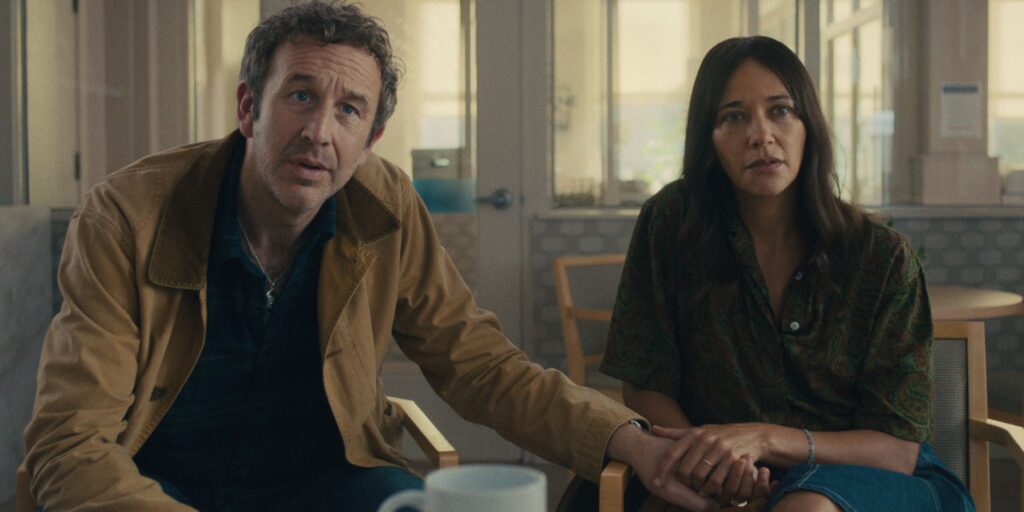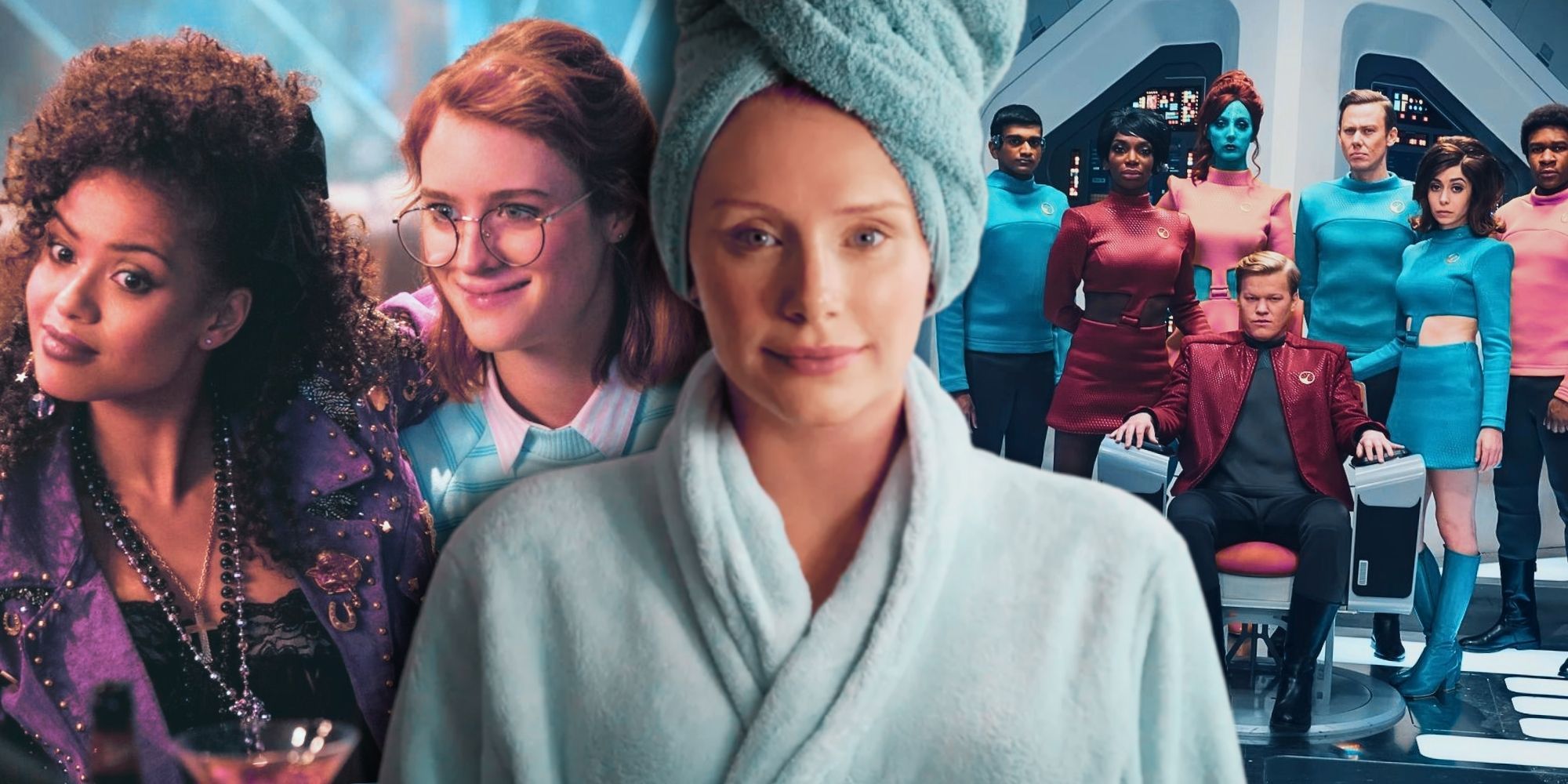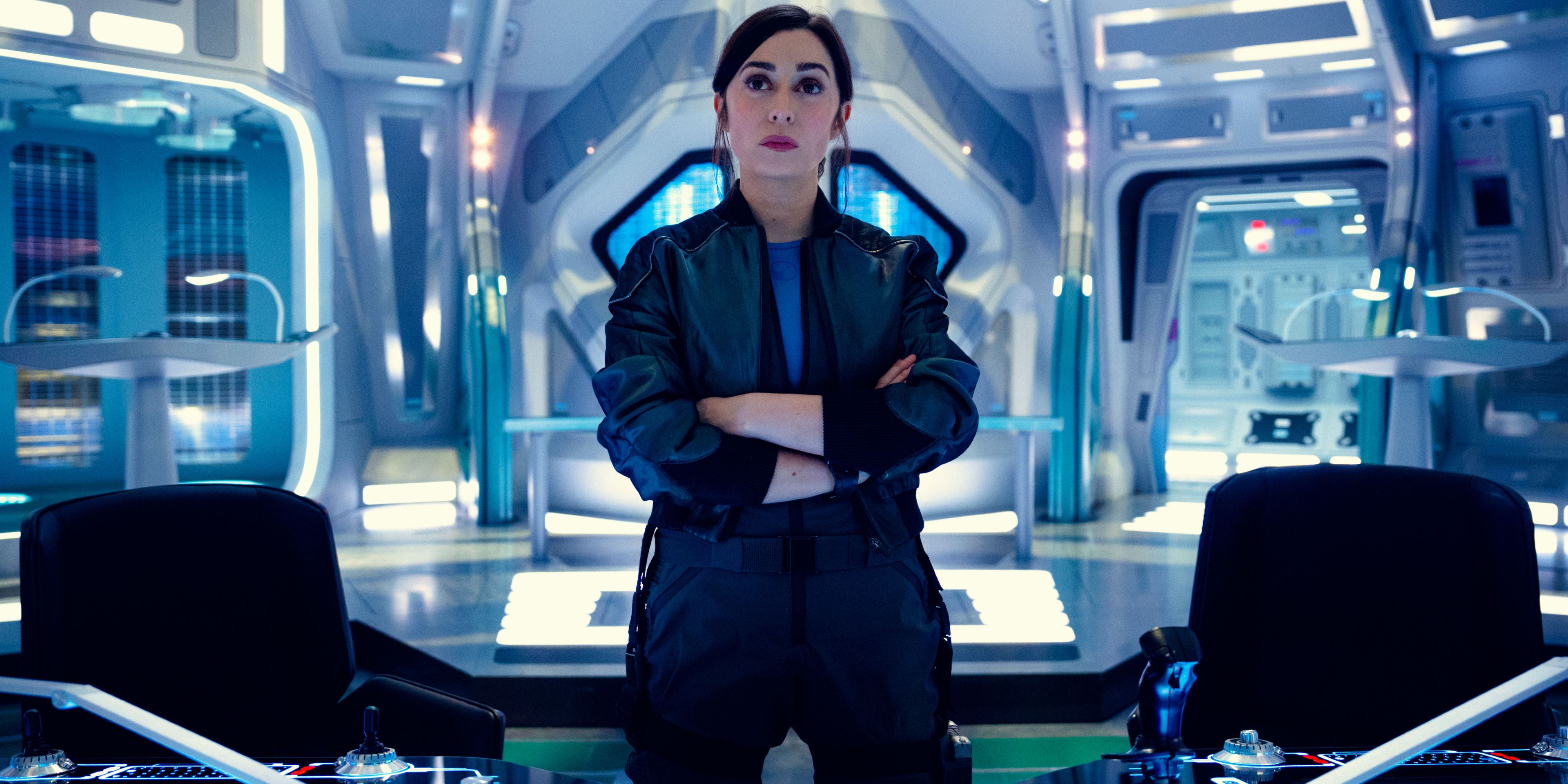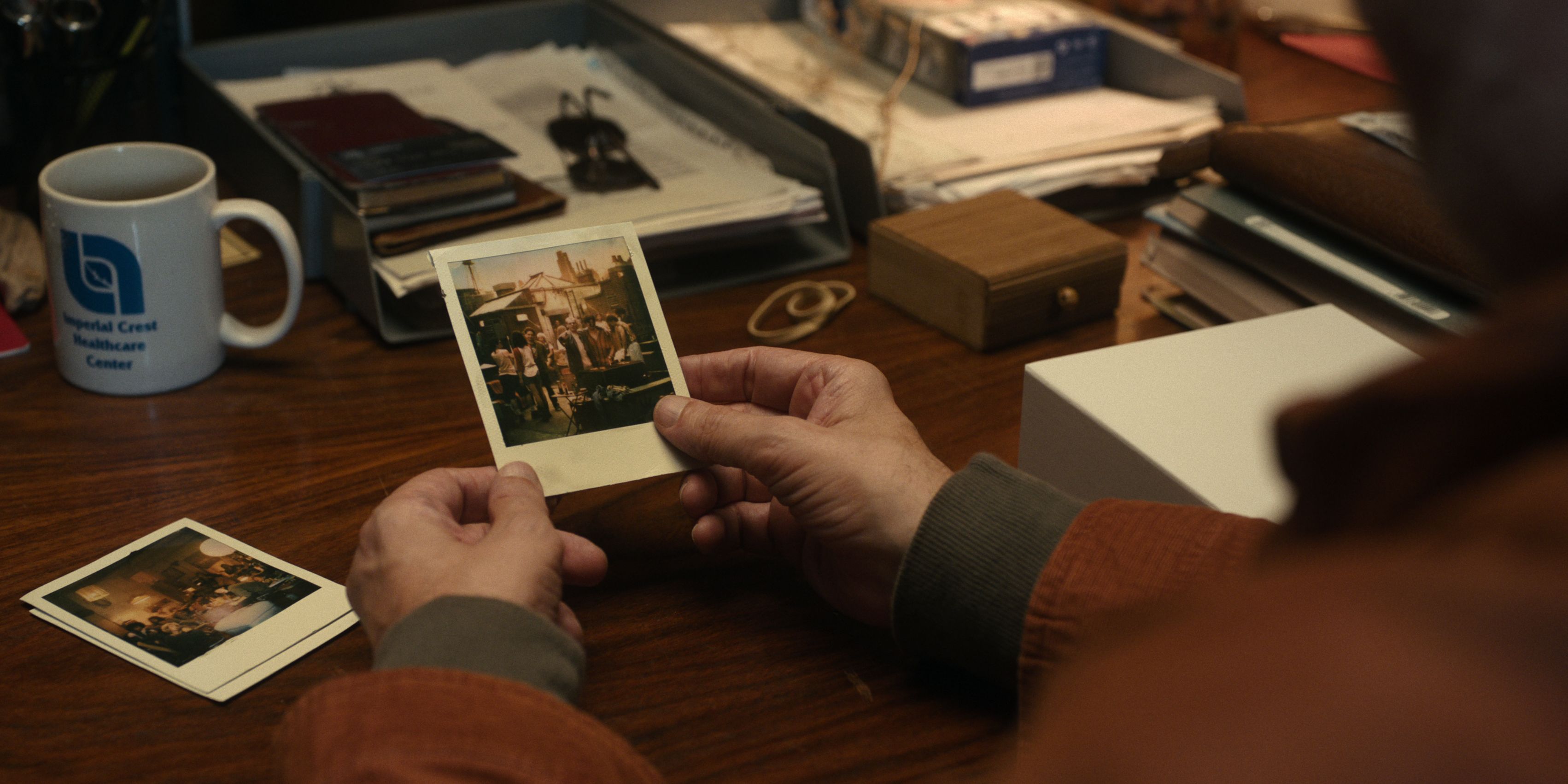I Think I’ve Caught What Netflix’s Anthology Show Is Really Doing & I’m Here For It

Black Mirror is a cultural touchstone for me. I first saw the series in high school, when the original Channel 4 episodes made their way to Netflix, and it felt then like some of the defining art of the 2010s. When the streamer became its permanent home, the show’s footprint became as big as it deserved to be. Much like The Twilight Zone, the genre-inflected anthology precursor we can’t help but compare it to, I believe Black Mirror has left a lasting mark. Its name means something specific, even to people who haven’t actually seen an episode.
How interesting it is to watch a show like that try to change. An anthology series will inevitably push its own boundaries, and debate about what is and isn’t a “Black Mirror episode” hasn’t stopped since the first Netflix season. But season 6 was a conscious effort to grow beyond the show’s zeitgeist definition – tech-focused, dystopian, thought-provoking, and (usually) a real gut-punch – that yielded mixed results. Even if I’d welcome more Red Mirror-branded stories, supernatural tales set in the analog past might be straying too far.
So far, season 6, episode 5, “Demon 79”, is the only Black Mirror episode to be released under the Red Mirror label.
Season 7 may seem like a return to fundamentals, especially at first. But a noticeable focus on its own history is really a means of continued testing, with smaller degrees of change. Something at the core of these episodes is different, whether tonally, formally, thematically, or all of the above. An instinct to emotionally or morally provoke us has faded; even undeniably bleak storylines didn’t leave me with that feeling I used to have to walk off. What remains is thoughtful, imaginative, and still inconsistent – but maybe most effective when it reaches for something new.
Black Mirror Season 7 Is A Journey Through The Show’s History
And It Starts Off In The Safest Territory
There are six new episodes this season, all of which I’ve seen. I’ll touch on each, in their recommended order, without divulging too much of what happens. But to get at what I’d like to about this show’s evolution, I will have to discuss how they feel.
“Common People”, a good but instructive lead-off, is what clued me in. I expect it will strike many as the season’s most Black Mirror-y episode: a relatively normal and happy couple (Chris O’Dowd and Rashida Jones) have their lives upended when an accident compels the husband to approve an experimental procedure to save his wife. As new wrinkles emerge, we watch them sink deeper into a hole that, in classic Black Mirror fashion, we know has no bottom. With all the clever commentary you’d expect, “Common People” proves right away there are still more techy nightmares to mine from reality.
But for all its channeling of the familiar, it isn’t quite the same. Ten years ago, this show would’ve pushed the premise further, or made us feel worse. There’s no weaponization of our empathy here that would leave us questioning our own code of ethics. There are only these people we relate to, having to make hard decisions we can understand, beset by the evils of corporate greed and indifference. The failings or compromises that might’ve been judged harshly in past seasons are instead looked at sympathetically, as if the circumstances they’re trapped in have left them no alternatives.
Black Mirror season 7 takes an interesting turn at its midpoint, and the three episodes that follow are its best.
This distinction proved prophetic. “Bête Noire” reaches for that moral ambiguity I’m referencing, as Siena Kelly’s Maria finds her workplace invaded by Verity (Rosy McEwen), who she hasn’t seen since high school. Then a bullied outcast, Verity’s now beautiful and well-liked, and Maria seems to be the only one uneasy around her. When inexplicable happenings undermine Maria’s position at work, she is immediately convinced that Verity is somehow responsible.
There is quality here, in the performances and camerawork especially, but it’s the least successful episode of this batch for me. In a slight difference to “Common People”, this premise should’ve been pushed further, but the old knife is dulled and just doesn’t cut like it used to. This part of the journey through the show’s past that I think this season represents (you’ll find echoes, big and small, of previous stories pretty much everywhere) has exposed something that just doesn’t fit with the way creator Charlie Brooker’s sensibilities have changed over 14 years.
If “Bête Noire” is the least successful, “Hotel Reverie” is the messiest. The title is shared with an old, Casablanca-style movie in this universe, which a down-on-its-luck legacy studio is desperate to exploit on the cheap. Enter Awkwafina, whose company can create an artificially intelligent simulation that would allow the movie to be “remade” with the original look and cast. The only difference, assuming all goes well, would be current Hollywood star Brandy Melville (Issa Rae) stepping into the (originally male) romantic lead role.

Related
7 Times Black Mirror Episodes Had A “Happy” Ending
While the majority of Black Mirror episodes end on a bleak note, there are a few episodes that stand out for their happy ending.
It’s the most comic episode, which sometimes works in its favor and sometimes doesn’t. It is also this season’s attempt to chase the high of “San Junipero”, Black Mirror‘s joyful exception that proved the bleak rule, which has never been a strategy I’ve appreciated. I can see what “Hotel Reverie” is trying to do, dramatically, but with its crashing of tones, and of modern and classic performance styles, it doesn’t quite thread the needle. But there’s still much to appreciate here – the always excellent Emma Corrin’s performance as a recreated 1940s starlet most of all.
Season 7’s Last Three Episodes Are Its Strongest
And They Each Point To Where Black Mirror Could Go Next
Black Mirror season 7 takes an interesting turn at its midpoint, and the three episodes that follow are its best. To explain why, I’ll break my promise to tackle them in order. Episode 4, “Plaything”, is essentially a spinoff of Bandersnatch, the interactive, 1980s-set Black Mirror movie about a young man’s doomed attempt to build a choose-your-own-adventure video game. In the near future, a man (Peter Capaldi) caught shoplifting is linked to an unsolved murder and detained. To explain, he must first go back to the ’90s, when he was a young video game journalist (Lewis Gribben).
He was once assigned to cover the new game from designer Colin Ritman (Will Poulter), who had a similarly fateful run-in with Bandersnatch‘s protagonist. The game never made it to shelves, and just as well – it became this man’s obsession. There’s an energy to the filmmaking that makes clear this episode genuinely excited its makers. A retro-past and an advanced near-future collide in “Plaything”, and Black Mirror has something to say about how our relationship with tech of the past has influenced how we approach it now. This is clearly their preferred way to say it in 2025.
These two episodes both present a new path forward: Black Mirror as damn-good-time science fiction.
Episode 6, “USS Callister: Into Infinity”, jumps from spinoff to direct sequel, a Black Mirror first. It picks up right where season 4, episode 1 left off, with Robert Daly (Jesse Plemons) dead, and his captive virtual clones of colleagues free to roam the universe of the online game he created. At almost 90 minutes, it’s the longest installment of the season, and Netflix clearly invested a lot in its production. It’s also undeniably the season’s most fun episode.
That might be a strange adjective for Black Mirror, but it somewhat applied to the original “USS Callister” as well, disturbing though it was. Both tap into the sci-fi adventure feeling of their Star Trek parody, and while the first episode laced it with horror, this one instead adopts the structure of a thriller. It pairs an elaboration of the story’s troubling themes with comedic beats and action scenes. Outside the game, there’s almost a detective story happening, as Nanette Prime’s (Cristin Milioti) continued digging into Daly’s activities threatens to blow up his and James Walton’s (Jimmi Simpson) entire company.
These two episodes both present a new path forward: Black Mirror as damn-good-time science fiction. The same provocative, twisted ideas, albeit with punches slightly pulled, put toward a very different emotional outcome. Season 7, episode 5, “Eulogy”, my favorite of these new releases, presents another.
“Eulogy” Is Black Mirror’s Most Successful Departure From The Status Quo Yet
What Does That Say About The Show’s Future?
In terms of emotional texture, “Eulogy” is pure drama, unlike anything Black Mirror has ever done. Phillip (Paul Giamatti) receives a call one day informing him that a woman he knew many years ago, who he didn’t even recognize by her married name, has died. He’s been asked to contribute to an interactive memorial through a program that can recreate and share memories.
If “San Junipero” proved these episodes need not all be bleak, “Eulogy” proves they need not all be cautionary tales.
The episode’s scope is very narrow; there are no real peeks at what warped world might exist outside the bounds of this narrative. The only other character is a digital presence called The Guide (Patsy Ferran) who talks Phillip through this process, coaxing out a history we realize he’s spent years burying, to the extent that he can no longer picture this woman’s face. Giamatti gets to do excellent work here. I found it very moving, and undoubtedly the most lingering episode of the season.
Perhaps its most significant departure from the norm is that at no point is the show wary of the technology in use. In these final three episodes of Black Mirror season 7, I see a clear desire to tell stories of different shapes, with a particular interest in what connections exist between the past, present, and future. But “Eulogy” and its effectiveness suggest there’s room for entirely different ways of thinking about our relationship with technology. If “San Junipero” proved these episodes need not all be bleak, “Eulogy” proves they need not all be cautionary tales.
I don’t know whether there will be more episodes after this, but even amid this tour through its own history, the show doesn’t feel done to me. Black Mirror has instead provided itself with a real path to grow beyond how we’ve come to understand it, and I would be eager to see how whatever comes next continues evolving in that direction.








